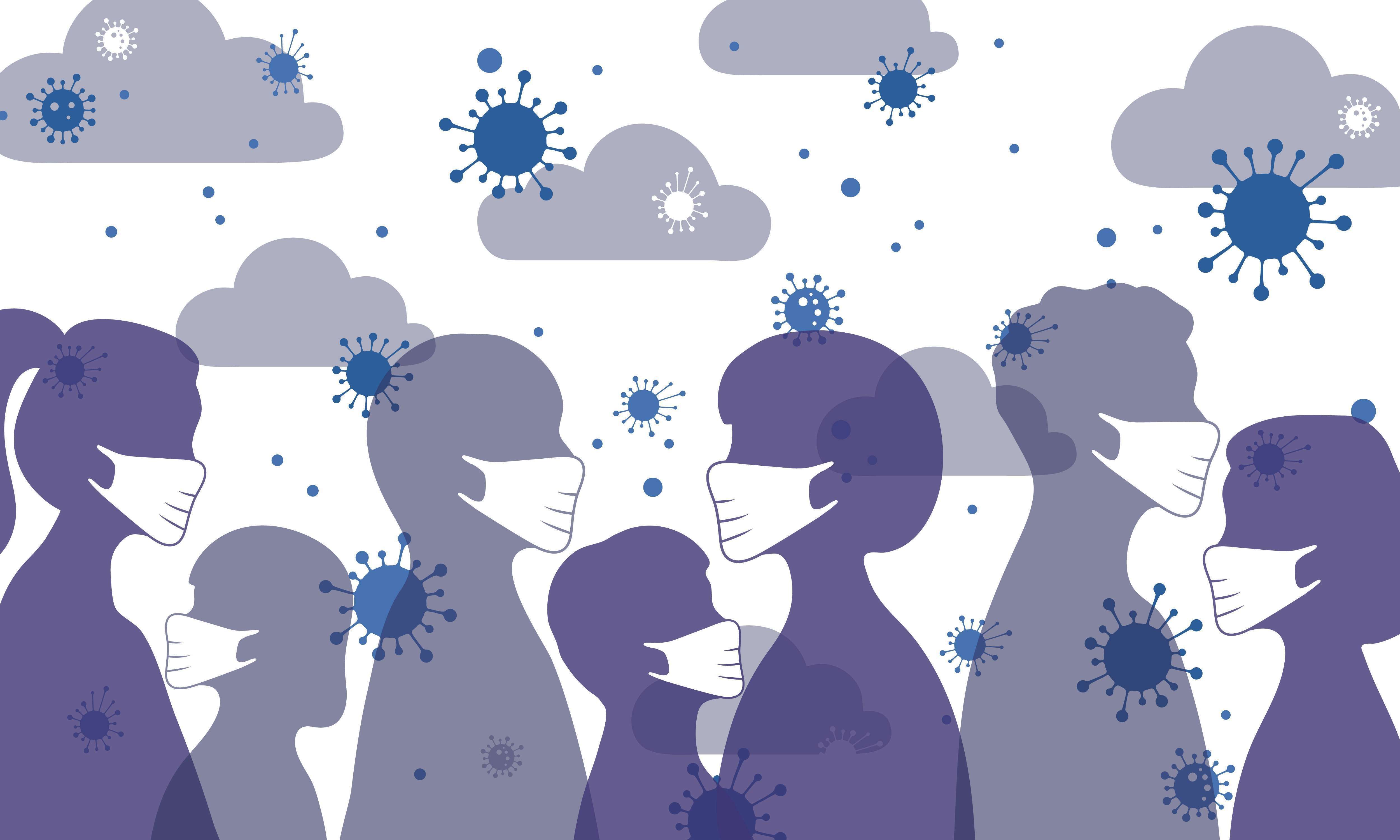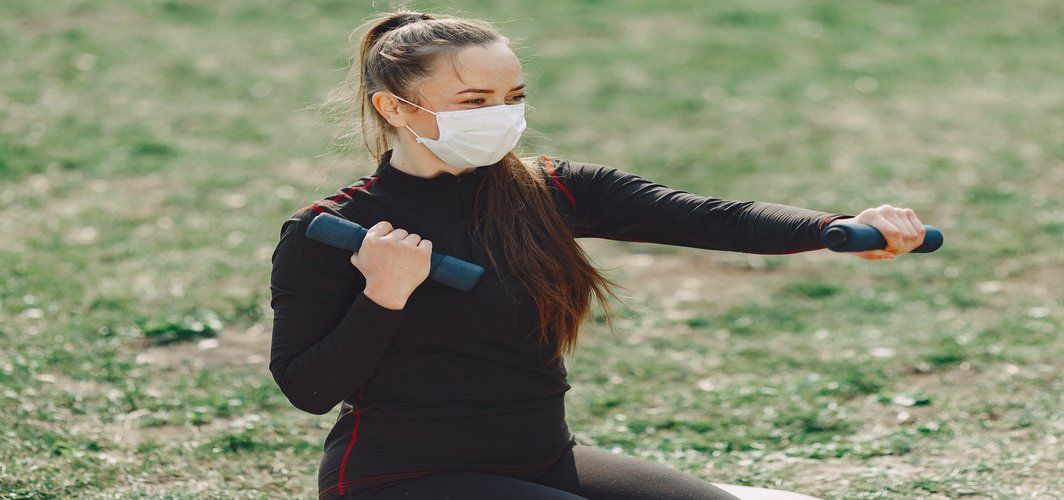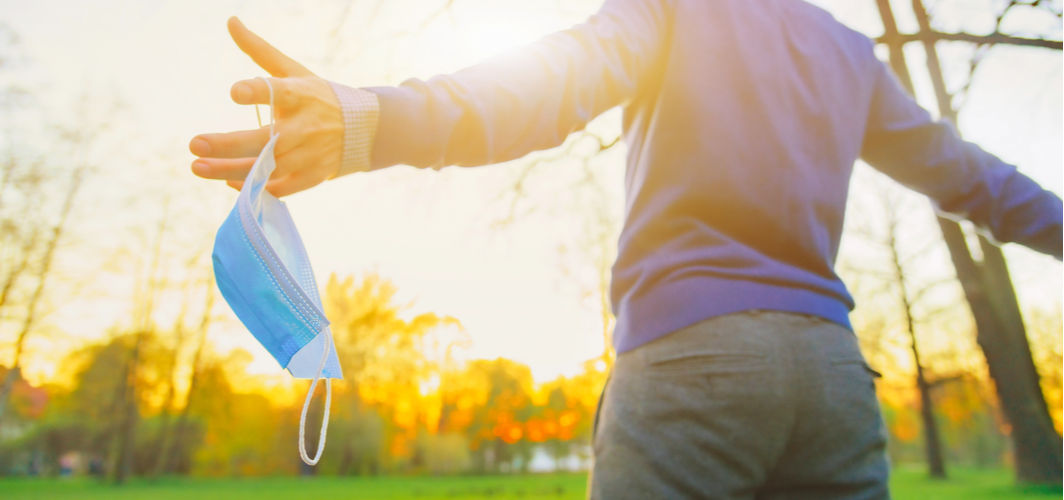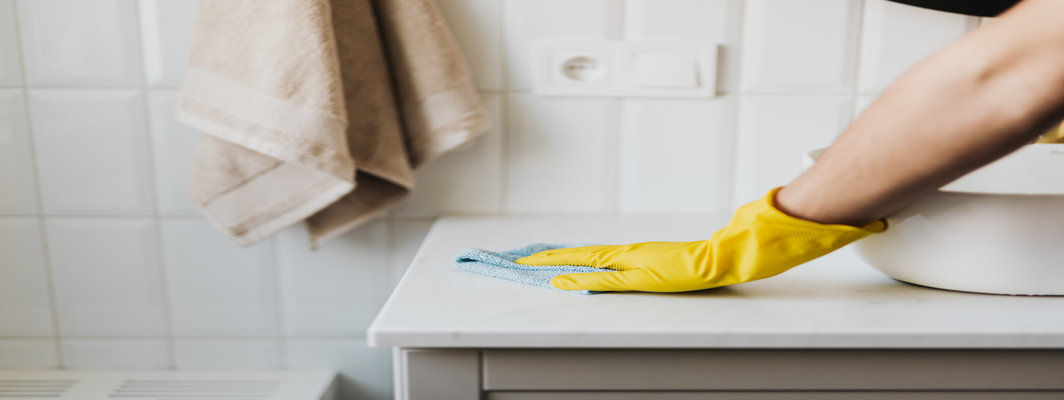Coronavirus Updates
Does Coronavirus Spread Through the Air?
5 min read
By Apollo 24/7, Published on - 25 May 2020, Updated on - 18 October 2022
Share this article
5
2 likes

Since December 2019, the world has been dealing with an unprecedented crisis in the form of a Coronavirus pandemic. The novel strain of the virus originated in Wuhan city in China. Many countries around the world are struggling with a rise in the number of Covid-19 patients. Preventive measures like social distancing and wearing masks in public have become the new normal. Researchers at the World Health Organization (WHO) are closely studying the novel Coronavirus to control its spread. Potential treatments and vaccines are being explored to fight against Coronavirus.
How does Coronavirus spread?
With the data available from early studies, WHO has concluded that Coronavirus can spread either through respiratory droplets or contact transmission.
When a Coronavirus infected person sneezes, coughs or speaks, the droplets are released from the patient’s nose and mouth. These are relatively heavier particles that do not travel far and quickly sink to the ground. Any person who comes in close contact with these droplets may get affected. Hence, keeping a physical distance of at least 1 meter with others, also known as social distancing and wearing of masks in public has been advised by medical practitioners.
The second route of spreading Coronavirus is through contact. This means that the droplets from an infected person can settle on nearby non-living objects. When a healthy person touches these objects and then touches his eyes, nose, or mouth, Coronavirus then enters the body, thereby causing COVID-19. Hence, frequent washing of hands with soap and water is crucial. All the surfaces at home should also be disinfected regularly.
There is some evidence of intestinal infection in few patients infected with Coronavirus. Studies were done on patients with symptoms of nausea, vomiting, and diarrhoea which showed growth of Coronavirus in the stool sample. However, there were no reports of transmission of the virus from the stools of an infected person to the mouth of a healthy person by contamination of food.
Other respiratory viruses like the Influenza virus have been known to travel a short distance through the air. Hence, researchers continue to study the movement of Coronavirus in the population.
Can Coronavirus spread through the air?
There have been cases when social distancing was followed and yet there was a spread of Coronavirus in the mass gathering. This led the scientists to explore further on the modes of transmission of Coronavirus. Few reports indicated the chances of airborne transmission, which means that the virus can spread through the particles suspended in the air. Since some countries are looking to relax the lockdown and restart public transports, the need to know if Coronavirus spreads through the air has become very crucial.
Few studies have suggested the aerosol transmission of Coronavirus. Aerosols are airborne particles that are much smaller in size than droplets. Due to their smaller size, they remain suspended in the air longer and can travel farther. Aerosol transmission has been shown previously in similar Coronaviruses like Severe Acute Respiratory Syndrome (SARS) and Middle East Respiratory Syndrome (MERS). However, there is no data yet on whether the aerosolized Coronavirus is infectious and what its minimal infectious dose is. The amount of Coronavirus one needs to be exposed to get infected is called minimal infectious dose and this data is not yet known.
What is the evidence for aerosol transmission?
A study was recently published in the New England Journal of Medicine (NEJM) in which researchers used machines to blow Coronavirus into the air and studied for their persistence in the air. Coronavirus remained viable in the air throughout the study period of three hours. Breathing and talking can also produce small aerosols that are carried by air currents and can be a source for airborne spread. The study concluded that aerosols from an infected person can travel to a considerable distance and can cause the spread of Coronavirus. This type of transmission is more in enclosed spaces with poor ventilation. WHO concluded that though the results showed air spread, a high powered machine cannot compare to normal human cough in the generation of aerosols.
Overall, most of the evidence about Coronavirus becoming airborne is either from a hospital or an artificially generated aerosol from a machine in the experimental study. In hospitals, the aerosols can be generated either through medical procedures or by patients. It is not yet clear from the evidence as to how much it can represent the everyday environment.
Factors that influence the risk of airborne spread
Based on the evidence, it cannot be denied that Coronavirus can become airborne but few factors affect the risk of transmission:
- The degree of contagiousness of Coronavirus; whether a patient can infect either two or three other healthy persons
- Sometimes a patient can infect a large number of healthy people; they are called “Superspreaders”
- The risk of transmission is higher in closed spaces with poor ventilation. Hence, crowded areas such as restaurants and public transport could be risky
- Wearing a mask is an effective way to limit the transmission of Coronavirus from an infected person. There is still limited data on whether a mask can protect a healthy individual. However, considering many patients can be asymptomatic, universal mask-wearing can be justifiable.
Conclusion
With so much still unknown about Coronavirus, it is too early to say how exactly it spreads from person to person. It can be said that Coronavirus can spread both through infected droplets as well as through contact. However, more evidence is needed before scientists can confirm if it is aerosol transmission. Hence, WHO continues to recommend droplet and contact precautions like frequent hand washing and respiratory etiquettes like coughing and sneezing into disposable paper tissue or folded elbow. WHO also recommends environmental cleaning and disinfection, social distancing, and wearing masks in public.
Coronavirus Updates
Leave Comment
Recommended for you

Coronavirus Updates
Can Exercising or Working Out With a Face Mask be Dangerous?
Wearing a face mask when exercising can affect your ability to breathe easily. This may be because exercise results in harder and faster breaths leading to airflow constriction.

Coronavirus Updates
Is this the beginning of the end of the Coronavirus pandemic?
Recently the UK became the first country in the west to license a fully tested COVID-19 vaccine. Other countries, including India, have also followed suit.

Coronavirus Updates
What Items in the House Need to be Disinfected Regularly?
Surfaces of our household objects are one of the major sources of Coronavirus transmission. Hence, we should disinfect these surfaces regularly using the disinfectants mentioned in this article.
Subscribe
Sign up for our free Health Library Daily Newsletter
Get doctor-approved health tips, news, and more.
Visual Stories

Explained: The Highly Transmissible SARS-CoV-2 Variants
Tap to continue exploring
Recommended for you

Coronavirus Updates
Can Exercising or Working Out With a Face Mask be Dangerous?
Wearing a face mask when exercising can affect your ability to breathe easily. This may be because exercise results in harder and faster breaths leading to airflow constriction.

Coronavirus Updates
Is this the beginning of the end of the Coronavirus pandemic?
Recently the UK became the first country in the west to license a fully tested COVID-19 vaccine. Other countries, including India, have also followed suit.

Coronavirus Updates
What Items in the House Need to be Disinfected Regularly?
Surfaces of our household objects are one of the major sources of Coronavirus transmission. Hence, we should disinfect these surfaces regularly using the disinfectants mentioned in this article.